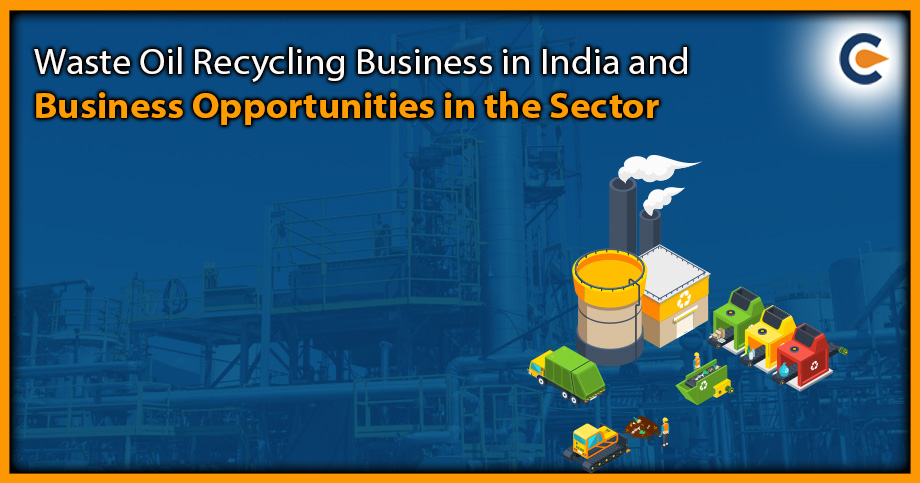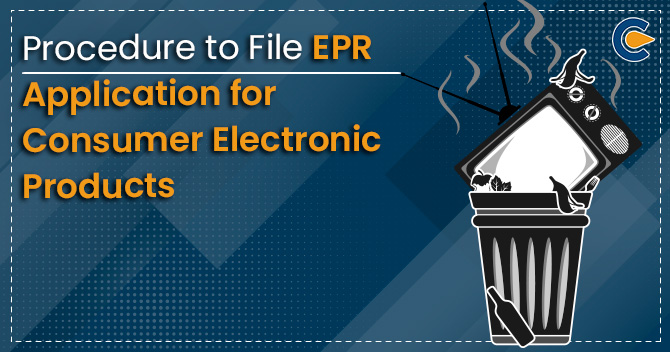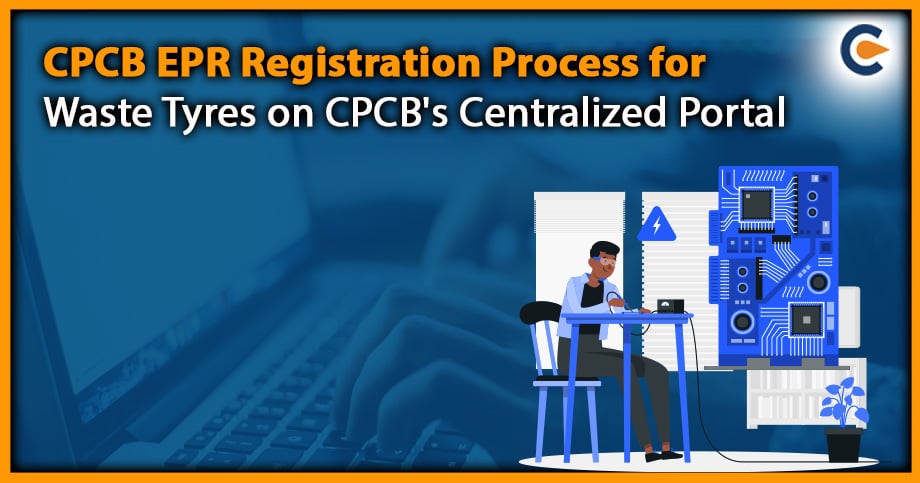The term oil includes engine oils, industrial oils, transmission oils, hydraulic and cutting oils etc., that are used as a lubricant medium to reduce friction and wear between bearing metallic surfaces. These oils have a running period, after which they have to be periodically replaced. Used lubricating oils are considered hazardous as it has the potential to cause pollution and affect the environment. Used crankcase oil can contain hazardous contaminants that accumulate during use as an engine lubricant. Sources of contamination include additive breakdown products like barium and zinc engine and material that leak from the engine combustion chamber into the crankcase oil, burnt oil, and metal particles from engine wear, such as arsenic, lead, nickel and cadmium. Numerous other metals are present in used oils, such as aluminium, copper, iron, magnesium, silicon and tin; however, they are generally not given much attention due to their low concentrations and low toxicities.
However, used oil is a form of hazardous waste that can be recycled economically. Re-refining used oil takes only about one-third of the energy of converting crude oil to lubricant. It takes 149 liters of crude oil to produce 3.8 litres of lubricant oil but only approximately 1.2 lt of of used oil to produce 1 litre of new, high-quality lubricating oil. Massive demand for Waste Oil Recycling Business is anticipated in India because of the growth seen in the three major bulk consumers of lubricating oil, i.e. the automobile sector, the manufacturing sector and the railways. Recycled oil is just as good for vehicles as virgin oil, which has undeniable environmental and economic benefits. This article will analyse Waste Oil Management in India and the recycling business opportunities created after the amendment to the Hazardous Waste Management Rules, 2023.
Overview of Waste Oil Management under EPR Regime
Environment protection agencies across the globe have formulated strict regulations to control the disposal of used oil. Extended Producer Responsibility is a waste management regime based on the producer’s pay principle that ensures that producers are responsible for the whole life cycle of their products, including their disposal. The significance of EPR in India has never been more vital. EPR has many advantages, including lowering waste, raising recycling rates, and establishing a circular economy that can immensely benefit a waste oil recycling business. As 49.55 per cent of the hazardous wastes generated are “recyclable” according to the government reports, most of these hazardous wastes, such as (used oils and lubricants) have qualities that make them suitable as resource materials for recovering base components (base oil), energy, materials like metals, or for use in secondary projects, the production of low-grade goods, or the recovery of the product itself, which can be used as a resource material after processing.
Applicability of EPR on Waste Oil Recycling Business
MoEF[1], in May 2023, brought an amendment in the Hazardous and Other Wastes Rules (HOWM Rules) 2016. This amendment has made the EPR registration of the producers, used oil importers, and recycling business owners mandatory from 1st April 2024. The EPR regime that has been introduced in the Amendment Rules, 2023, has been described under Schedule X Rule 2 of the HOWM Draft Notification, 2023. The changes in the waste oil management will lead to a demand for Waste Oil Recycling Business and collection services in the country.
To identify the opportunities in Waste Oil Recycling Business, we must first understand the changes brought by the 2023 notification. So the amendment has defined the following terms related to the oil refining industry.
| Re-refining | A process that purges unwanted impurities from used-up/ waste oil to produce base oil or lubricating oil. |
| Collection point and Collection agent | Facilities where the collection agent will be permitted to collect the waste oil from consumers/ bulk consumers |
| ‘Environmentally sound management of Used oil | The approach to ensure that waste oil is handled in a way to protect human health and the environment from adverse effects that may result during gathering, transportation, and recycling. |
| Extended Producer Responsibility | Duty of any oil or lubrication oil manufacturer or waste importer to satisfy recycling targets solely through licenced recyclers to ensure environmentally sound management of old oil in accordance with the rules of subparagraph (2 of the amended rule. |
| Recycling | Any environmentally sound method of re-refining old oil to create base oil or lubricating oil that has the facilities detailed in the standard operating procedure (SOP) or standards established by the Central Pollution Control Board |
| Base Oil | The oil that is used for the manufacture of finished lubrication oil. |
| Used Oil | Any oil as defined under sub-rule (36) of Rule 3 of Hazardous and Other Wastes (Management and Transboundary Movement) Rules, 2016 |
Opportunities in the Waste Oil Recycling Business
The waste oil is collected from engines/ machines/ boilers etc. by Waste Oil Recycling Business refined through automated machines and after quality testing, sold back to manufacturers as base oil, an essential component in manufacturing of final product. The limited availability of crude oil feedstock to manufacture of virgin oil is driving the need for the use of recycled base oil. The following are the two businesses that can be set up in the waste oil recycling segment.
Waste oil Reconditioning (on-site)
This process is used to remove impurities from the used oil by uses a filtering system at the site where oil is being used, to prolong the life of the oil. This method is helpful in case of large operations or factories that generate a lot of waste oil.
Re-Refining Of Used Oil into Base Stock to Manufacture New Lubricating Oil
The used oil is the feedstock for a Waste Oil Recycling Business. Here used oil is filtered, hydro-treated and distilled to remove different contaminants. The resulting product is identical to virgin base oil . There are filtration techniques that can filter used oil to meet the applicable standards, such as the American Petroleum Institute (API) standards used in India. Refining gives eco-friendly base oil, generating lower carbon emissions than virgin base oil. The rise in the focus on the sustainability of the environment globally is providing a significant opportunity for the global recycled base oil market. Re-refining of used oil prolongs the life of the oil , making refining the the safest approach to recycle oil .
Registration Process for Waste Oil Recycling Business
Producers/ waste oil importers/ recyclers, and collection agents will have to register for EPR for Waste oil through an online system developed by the Central Pollution Control Board. The registered entities will be issued EPR registration numbers and will have to report production/ import and recycling data quarterly and yearly returns as per their responsibilities, and the tracking system will ensure a material balance of the lubrication oil introduced to the market by producers during a fiscal year will be maintained by this system.
The following businesses will have to register on the EPR portal.
- Producers
- Used Oil importers
- Recyclers
- Collection agents
Any entity that fits into more than one of the categories above must register under each one separately. The rules also defined that authority of the Central Pollution Control Board to cancel an entity’s registration in case of knowingly withholding information, false reporting of oil production recycling or import, or any other information required under the new schedule, for a period of up to five years. In addition, to it, the Board may levy environmental compensation in case the entity falls short of meeting its EPR targets, as defined in the rules.
Responsibility of Waste Oil Recycling Business
If one wishes to start a used oil recycling business, one will have to adhere to the following guidelines.
- Getting themselves registered on the centralised EPR Portal
- Submitting yearly returns in the format specified on the portal by the deadline of June 30 after the fiscal year to which the return relates.
- Submitting quarterly returns in the format specified on the portal by the end of the following month, the time period the returns are for.
- Verify that SOP of the waste oil recycling business and recycling procedures adhere to the SOP or other rules issued by the Central Pollution Control Board.
- Ensure the environment is not harmed while old oil is stored, transported, and recycled.
- Ensure that the waste generated during recycling is disposed of in line with the Hazardous and Other Wastes Rules 2016.
Conclusion
Recycling oil is proving out to be a boon to the environment and has great economic benefits. Therefore, there is much room for growth for used/ Waste Oil Recycling Business in the country. The increasing number of automobiles across the globe is driving the demand for lubricants. Production of base oil from fresh crude oil is an energy-intensive process. Petrochemical sources are depleting, and increasing crude oil prices are encouraging oil manufacturers to find new methods to re-refine and utilise waste oil. This makes recycling used oil a reasonably viable process for base oil manufacturing. However, for Waste Oil Recycling Business to fully benefit from various government incentives, they must register for EPR and fulfil other legal obligations such as necessary licences and approvals. Seeking the assistance of industry experts when setting up an oil recycling business will assist the entrepreneur in fulfilling the legalities and meeting post-compliance in time.
Read Our Article: Growth Opportunities In Recycling And Waste Management Business











